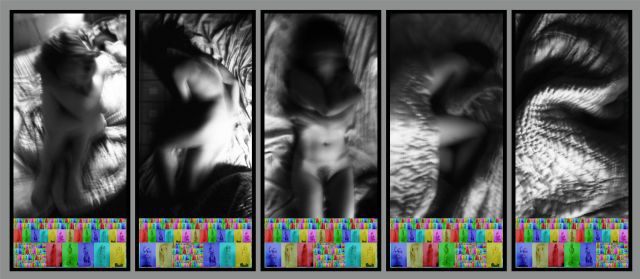Ammar Al-BeikTransition

“Life cannot be rendered by photographic recopying of life, but by the secret laws in the midst of which you can feel your models moving in the nude. All that’s not beautiful is obscene…” – Ammar al-Beik.
How can the photographic image – static, fixed, a recording, an archive of light, free from consequence, impervious to time – create a theatre of movement? As the audience of these photos we are forever disembodied by the intervention of the lens: cut off, held back from the flesh of the models. And they are models: objects, faceless – we can’t recognize them as individuals. We gaze, but we aren’t the originators of the gaze, we see the moment as it’s recorded for us by the author of the image, and we gaze upon what is presented to us because we can’t touch.
We can’t touch because we are absent from the flesh, as we are always absent from one another. Transition, with its dominant black-and-white nudes, is about touch. We look at these images, a view mediated by technological apparatus, we see with our eyes, we may touch the image/body, but we are exiled forever from the other/the image – we are always at the limit, the margin.
Black boundaries separate the series of blurred nudes. This blurring suggests movement, of course, and yet as we can’t see the completion of the movement, the dynamics are continually ambiguous, unknowable. The monochrome nudes are also surrounded at the bottom edge by fragments of neon-coloured images of ancient statuary, which create a mosaic effect constituting yet more frames, boundaries and intersections – alluding perhaps to further temporal and spatial partitions.
And what of al-Beik’s beauty-obscenity assertion? It appears he is invoking an aesthetic polarity when surely such a notion is a bleak nod to fascism or at least an unyielding superficiality. I suspect the obscene is the isolation of the body. I am reminded of Stendhal’s notion of beauty as that which promises happiness: is that the beauty al-Beik seeks, the bliss of possession? Always poignant, these images imply nostalgia for an imagined intimacy: the untouchable loved one.
